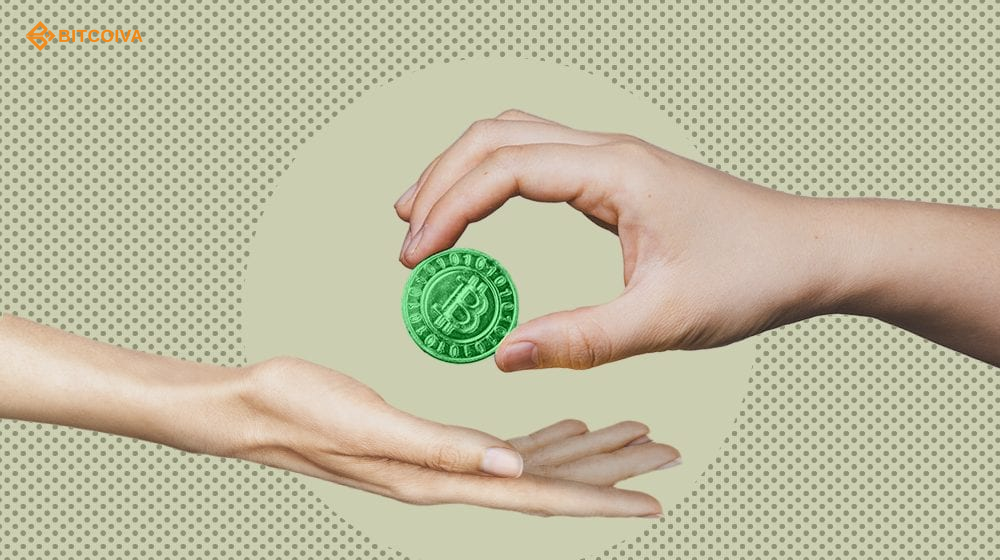Bitcoin, one of the top 5 cryptocurrency in India market, has provided its fan base with excellent earning prospects over the past few years while being mainly unregulated. It also resulted in significant losses for some who staked too much, jeopardizing their life savings.
Since buying Bitcoin and other cryptocurrency India has become relatively simple in recent years, it is no longer a significant obstacle to their adoption as investments. There are opportunities for lucrative investments due to news that retirement plans, ETFs, and financial institutions are adding cryptocurrency to their portfolios. But when exactly should you sell cryptocurrency?
Selling an asset can be more complicated than buying one as an investment. A few factors, such as the fear of missing out (FOMO), may impede. Investors may believe that an asset’s upward trend will continue. They risk losing money if they decide not to sell if the price unexpectedly lowers.
Lesson from the Dot.com Bubble
Everyone is familiar with the infamous dot-com bubble in the stock market that developed in the late 1990s due to excessive speculating on businesses tied to the internet. While many who waited because they thought the value would increase further suffered from the market crisis in October 2002 and lost up to 80% of their investment, the investors who were able to sell when the worth of those enterprises increased by 400% achieved life-changing gains.
Many people think cryptocurrency is here to stay and has nothing to do with the dot-com boom. All assets are dangerous, nevertheless, due to the industry’s high volatility and speculative activity.
The Four Cryptocurrency Investing Rules
The most ethical investors have established a few essential guidelines to follow when engaging in public investments, which also apply to cryptocurrency, aside from having a specific plan. These guidelines include the following:
1. Only spend what you can afford to lose. It equates to typically between 5 and 10% of your total savings.
2. Recognize the investment you are making. It’s crucial to avoid following a touted asset and instead invest in things you think have solid fundamentals, like technological potential.
3. If you’re not an expert trader, owning an asset like Bitcoin for a few years might be sufficient to generate some good profits (your financial advisor will often advise you to hold it for at least five years).
4. Knowing your goals, set up your plans on buying and selling targets, and stick to them.
But isn’t it easier said than done?
We all FOMO (Fear of Missing Out) as investors at some point; we all put too much of our life savings into risky investments believing they would make us rich; we all eventually lose some money.
Knowing the fundamentals of trading can help those who want to avoid sitting and waiting for profits to come to them as the asset grows. Even if we HODL and remain, when is the best time to sell?
With the exponential growth of the crypto industry, which is now worth close to $1 trillion, ‘Hodling’ as an investment strategy has become more appealing and popular. Despite consistent volatility, technological advancements have made crypto robust, and some may even argue that Bitcoin is the strong crypto that has reached value along with gold.
What Is the Best Crypto Investment Strategy for Newcomers?
Bitcoin enthusiasts swear they will never sell BTC because it will eventually become the new global monetary system. All you have to do is save as much as possible during bear markets and ensure you have enough to pass on to your family and heirs in the long run.
Dollar-cost averaging(DCA) is another popular strategy for Bitcoin and other cryptocurrencies. Small amounts can be transferred directly to your crypto wallet daily, weekly, or monthly. The best crypto currency exchange In India, such as Coinbase, make it simple to set up a DCA service so that regular money transfers from your fiat bank account to your crypto wallet.
If you are not a die-hard bitcoiner, consider holding the top cryptocurrency, altcoin, or token for a long time but selling in fixed amounts as the asset’s value rises.
When Should You Sell Your Crypto?
Although many analysts believe Bitcoin’s four-year halving cycle was broken last year, it continues to define meaningful bear and bull markets. Because the trend is never only upward or downward, knowing when to buy can help you plan when to sell.
The entire cryptocurrency exchange India market is always heavily reliant on the movements of Bitcoin. Bitcoin still has a 40% market share, with the remaining 60% made up of 20% ETH and the rest made up of a slew of cryptocurrencies that may vanish in the coming months or years.
The first step, and the small strategy that will help you work towards something, is to have a clear objective. Whether it’s to pay off debts, save for a large purchase like a house, or fund your children’s education, having a specific goal in mind for your investment is always a good idea and will provide you with the motivation you need to follow through.
Even if you are in it for the long haul with your crypto, you should consider selling your asset – or a portion of it – if its value has risen two or three times the purchase price. In that case, you can sell the equivalent of your initial investment or 5-10% of your overall stack.
Another time you should consider selling your asset is when its fundamentals are no longer valid, there needs to be more development, or you have lost faith in the project. In that case, your primary concern should be minimizing your losses by selling reasonably.
Be Cautious of P&D Schemes
Every day, new crypto opportunities emerge. Most are precarious, and you could lose all of your money because many startup projects are pump-and-dump schemes (P & D), which can drop as low as 90% from their initial value. However, investing in solid projects and remembering rule number one – only investing what you can afford to lose – should keep any significant losses at bay.
It is also critical to monitor the overall crypto exchange India market and understand macro externalities, like war, pandemic, or other events that may impact your asset’s value. In that case, a price drop is not the same as a drop caused by the failure of a project, which is an important distinction to keep in mind.
Personal, market and fundamental factors can all influence your decision to sell cryptocurrency. However, if you choose solid projects, don’t risk your life savings, and develop patience, you could be in for some nice surprise money in the long run. Sometimes the best strategy is to make suitable investments and then do nothing for some years.
Visit us on: www.bitcoiva.com


